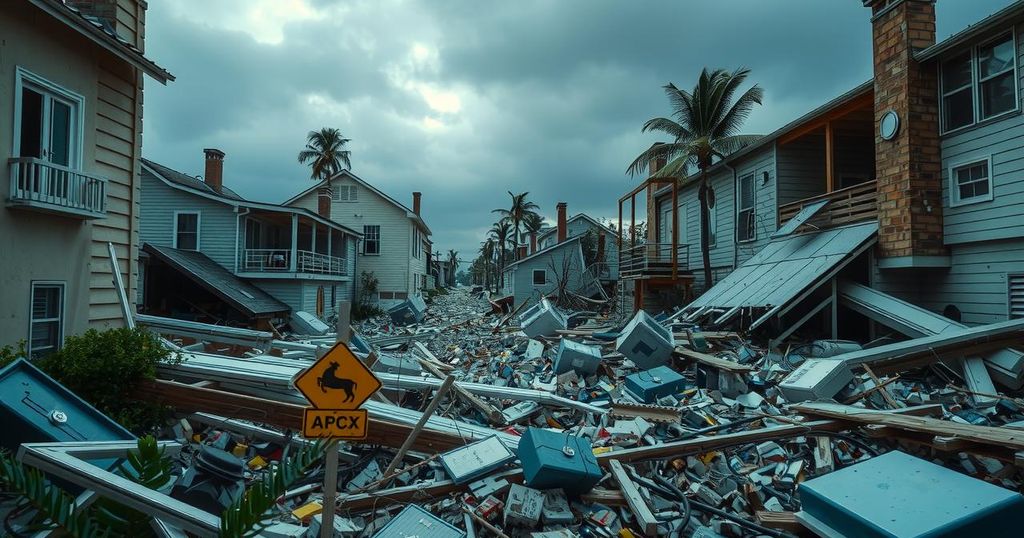2024 Atlantic Hurricane Season: A Record-Breaking Year of Destruction

The 2024 Atlantic hurricane season saw an uncommon total of 11 hurricanes, significantly impacting regions across the Caribbean and southeastern United States. Notable storms included Hurricane Beryl—the earliest Category 4 hurricane on record, and Hurricane Helene—resulting in catastrophic damage and over 200 deaths. This season highlighted the influence of climate change, with warmer ocean temperatures affecting hurricane patterns.
The 2024 Atlantic hurricane season concluded with significant impact, recording 11 hurricanes, notably exceeding the average of seven. Meteorologists described the season as “crazy busy,” attributing the heightened activity to unusually warm ocean temperatures. Eight storms made landfall, affecting regions including the U.S. Gulf Coast, Bermuda, Cuba, the Dominican Republic, and Grenada. Among these, Hurricane Beryl was particularly remarkable as the first Category 4 hurricane in June, damaging Carriacou and Jamaica.
Hurricane Helene emerged in September as the deadliest storm on the U.S. mainland since Katrina, claiming over 200 lives and causing an estimated $48.8 billion in damages across several states. In October, Hurricane Milton intensified rapidly, reaching wind speeds of 180 mph, marking it as one of the most powerful hurricanes recorded in the Gulf of Mexico. Areas affected by Helene and Milton experienced unprecedented rainfall, bringing severe flooding in Asheville, Tampa, and Orlando.
By November, Hurricane Rafael approached historical wind speeds, hitting Cuba amid ongoing recovery efforts from previous storms. The current hurricane season has raised concerns regarding climate change, with experts noting that increased ocean temperatures are conducive to hurricane formation and intensity at unusual times and locations. “In other words, we never had a storm as strong as Beryl so early in the season anywhere in the Atlantic and we never had a storm as strong as Milton so late in the season in the Gulf of Mexico,” said Brian McNoldy, a hurricane researcher at the University of Miami.
Despite the challenges in directly attributing specific storms to climate change, it is acknowledged that human-induced warming has heightened the frequency and severity of such extreme weather events.
The escalating intensity and frequency of hurricanes are increasingly attributed to climate change, driven primarily by human activities that elevate greenhouse gas concentrations in the atmosphere. The scientific consensus indicates that warmer ocean temperatures facilitate hurricane formation and intensification, leading to the occurrence of extreme weather conditions outside of traditional patterns. The 2024 Atlantic hurricane season has exemplified these trends, exhibiting an unusual number of high-intensity storms earlier and later than seasonal norms, a phenomenon that scientists are closely monitoring.
In conclusion, the 2024 Atlantic hurricane season has proven to be both unprecedented and devastating, with twelve hurricanes recorded, marking a significant rise from historical averages. The fatalities and damages incurred, particularly from storms such as Helene and Milton, underscore the growing impact of climate change on hurricane activity. Researchers emphasize the need for continued monitoring and evaluation of climate-related factors that contribute to the severity of storms.
Original Source: www.newsday.com






